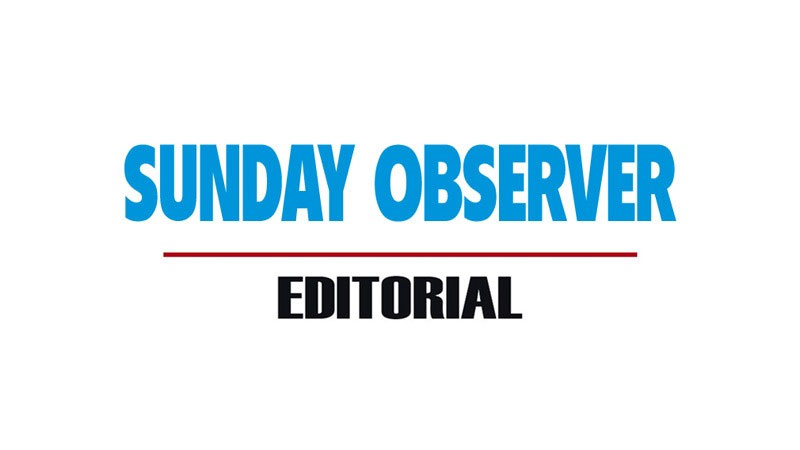Apart from taking more than seven million precious lives, the Covid-19 pandemic brought one other fact to the fore – the inequality between developed and developing worlds. The Global South watched with horror and dismay as the First World ordered and hoarded almost all the vaccines as soon as they came out of the production lines back in 2021, ignoring appeals by the World Health Organization (WHO) and GAVI, the vaccine alliance.
The same story unfolded with Covid-19 treatments such as Paxlovid, which were exclusively ordered by developed nations. Western pharmaceutical companies also held on tightly to their patents for vaccines and treatments, without transferring that technology to vaccine manufacturers based in developing countries. In fact, the pandemic has come and gone, but some African countries are yet to receive any vaccines.
This was, of course, just one lesson that the world learned from the Covid-19 pandemic. The plain truth is that the world was not prepared to face a pandemic of that scale, despite having faced a few scares such as Ebola, SARS and bird flu. The debate on the origins of the virus still goes on. Coordination on pandemic relief was minimal. We are still learning about the effects of Long Covid, where the symptoms of the disease linger on in the body long after the virus has left.
Although a span of 100 years separated the Spanish Flu and Covid-19, much the same methods were used to control the latter – lockdowns, social distancing, hand washing and wearing masks. This means that viruses still have the upper hand, in spite of major advances in health and medical science.
But now, there is a growing perception that the next pandemic – dubbed “Disease X” could be many times more deadly than Covid. In the extreme, it could even be an Extinction Level Event (ELE) with much of humanity wiped out. The best answer is vigilance and research on a global scale, avoiding the many pitfalls that made Covid-19 worse than it actually was.
Away from the glare of publicity, this is exactly what is happening. For more than two years, countries have worked together towards one historic goal – to ensure the world is better prepared for the next pandemic by learning lessons from the devastation caused by Covid-19.
At a time when conflicts, politics and economics have wrought destruction, discord and division, Governments have found a way to work collaboratively to forge a new global agreement to protect the world from inevitable future pandemics. Indeed, the next pandemic is a question of “when” not “if”. This effort, driven by hundreds of negotiators from 195 nations, was launched just as Covid was receding.
At the core of this effort is the principle that the world must never again be left so vulnerable to another pandemic. Governments must never again fail to cooperate in sharing vital information, medical equipment and medicines. Never again can the world’s poorest countries and communities be left at the end of the queue when it comes to access to life-saving tools like vaccines.
The Member States of the WHO will thus undertake two landmark, parallel efforts: to start negotiating a first-ever Pandemic Agreement (PA) to prevent, prepare for and respond to pandemics, while making targeted amendments to the existing International Health Regulations (IHR). The outcomes of these vital negotiations are scheduled to be considered at the 77th World Health Assembly (WHA) that will open in Geneva tomorrow (27).
The PA will ensure real-time access to the capacities needed to protect health workers and communities from a pandemic threat, so that the world will not again experience a repeat of the inequities in access to vaccines, diagnostics, therapeutics, ventilators, Polymerase Chain Reaction (PCR) and Rapid Antigen (RA) tests, Personal Protective Equipment (PPE) and other vital tools. The PA should also have provisions for the rich countries to supply advanced equipment such as Extra-Corporeal Membrane Oxygenation (ECMO) machines to their poorer cousins. Sri Lanka, for example, has just two of these rather expensive life-saving machines.
The PA will also ensure that there are no weak links in the chain of defence against pathogens with pandemic potential. This requires collaboration between countries to share what is needed, including pathogen studies, diagnostics, real-time information and medical resources such as genetic sequencing machines. More studies are needed on Zoonotic diseases, whereby viruses jump from animal species to humans. This is how Covid-19 is believed to have originated.
The PA should also make it mandatory for Western pharmaceutical companies to share their technology or patents with vaccine and drug manufacturers in the Global South, such as the Serum Institute of India (SII), the world’s largest vaccine maker by volume. Better still, they can make the vaccine formulas open-source, so that companies in the Global South can make the vaccines without paying huge royalties or licensing fees to Western companies.
Guidelines on avoiding the spread of misinformation and fake news through social media and even the mainstream media are also vital in the battle against pandemics. At least a million Covid-19 deaths could have been avoided if these patients did not fall prey to misinformation (called an infodemic) on vaccines, treatments and masks.
The mask mandate became a political issue in many countries, leading to many avoidable deaths. It is thus vital to keep the public informed with the correct facts every step of the way during a pandemic. That could mean the difference between life and death when Disease X eventually strikes.









